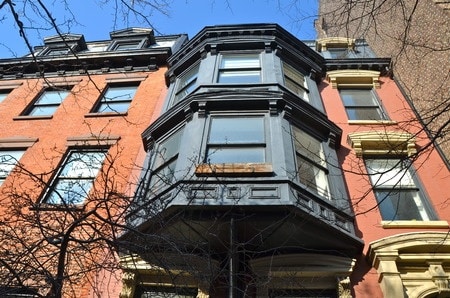We can’t survive new rent laws: A small-building landlord says reforms will lead to deterioration of housing stock
As a young man growing up in the Bronx and attending public schools, I never thought I’d become a landlord. I moved with my parents from Guyana when I was 5. In 1996, while enrolled at DeWitt Clinton High School, I got a job at a check-cashing company, working 45-70 hours a week for just $5 an hour.
After graduating, I attended a two-year college, working my way up at the check-cashing company, saving what I could along the way. Eventually, it paid off; I saved enough to buy a laundromat that I later transferred to my parents at cost so they could make a stable living.
Later on, I received a mailing about a building for sale. I’d always enjoyed construction, so I decided to give it a shot. I knew nothing and overpaid. But I learned from that experience. Although I no longer own that building, over time I purchased three more small buildings in the Bronx, putting every dollar I had into those investments.
When I took over a four-story, eight-unit walkup in Longwood in March 2010, it was in bad shape, with approximately $675,000 in debt. The previous owner wouldn’t even visit the building out of fear for his safety. I’ve had to deal with all sorts of issues at the property, including drug use, domestic violence, physical altercations and garbage thrown from windows. I’ve had tenants who wouldn’t pay the rent but would use the housing courts to prolong their tenancies. I’ve sustained more than $50,000 in lost rent alone.
Nevertheless, I enjoy working with my tenants, and I’m doing my best to turn the building around. I’ve improved the plumbing, heating and electric. Until now, landlords have been able to upgrade because they could offset some costs through legally authorized major capital improvement (MCI) increases.
Tenants deserve upgrades. After all, they are working to make ends meet. Many of them haven’t had the same success this country and city have afforded me. So I absorbed the costs, trying to do right by them. But this new law virtually eliminates MCI increases — even retroactively. That will harm thousands upon thousands of New Yorkers.
If there are rogue building owners who turn off the heat or fake renovations, they should be punished. But that’s not me or the other owners I know.
This new rent regulation law also forces us to rent apartments to new tenants without the modest vacancy rent increases that traditionally covered some of the rising costs of fuel, water, taxes, salaries, repairs and improvements. And it converts what was supposed to be a temporary program, in which our buildings gradually moved towards deregulation, into a permanent rent-regulation regime.
That’s why on Thursday I filed a federal lawsuit, along with other small owners, challenging the constitutionality of this debacle of a new rent regulation law and the many different ways it destroys the value of my property and undermines the investments I was finally able to make after years of perseverance.
I’m not trying to deny tenants the protections they were afforded before. I’m simply asking the court to strike down the crazy, irrational provisions imposed by this new law — for example, allowing millionaires to live forever in rent-regulated apartments that should only be for those with limited incomes; raising the bar so high on condominium conversions that they are effectively precluded, even for owners like me whose buildings are well-suited for conversion; and reducing the amounts landlords can increase rents after making improvements.
If landlords like me can’t make a living, buildings will fall into disrepair and eventually become uninhabitable, resulting in less affordable housing stock for residents who really need it. That’s what we’re trying to prevent from happening.
Source: nydailynews.com
















 Accessibility
Accessibility